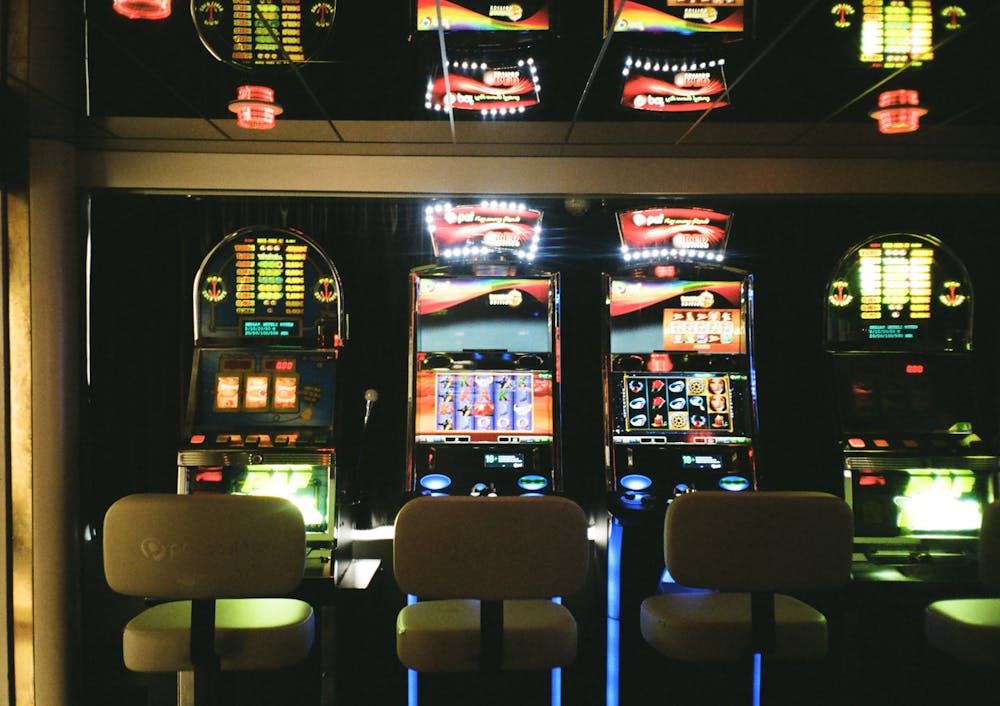How are Slot Machines Programmed to Pay?

Slots machines are fun to play, but they can be a real nightmare when it comes to coming up with a winning strategy. Why?
Just because of their randomized nature giving players no clue of when they are going to win or lose money. Understanding how slot machines work can help you increase your profits by managing your budget more efficiently, but there is no strategy that can help you increase your winning chances.
So, the big question is, how are slot machines programmed to pay?
Well, we have to break down how they work in order to fully understand their payment pattern if there is one.
The Inner Workings of Slot Machines – The Random Number Generator (RNG)
If we strip down all the intriguing visuals and immersive sounds, we can find that all slot machines work on the same principle. They leverage the power of the Random Number Generator (RNG), which is an algorithm that ensures that the outcome of every spin is completely random and independent of the previous one.
This is a powerful algorithm that comes up with thousands of numbers per second, even when the slot machine is not active.
So, you hit the spin button, the random number generator kicks in coming up with the outcome of your spin totally random as the algorithm goes through every single slot combination.
This is quite a revolutionary software that ensures that each spin is fair and unpredictable. In other words, there are no strategies that can help you increase your winning chances, and there is no way of knowing when you are going to win.
Symbol Selection and Reels
Slot machines usually have three to five reals, each of them displaying a variety of symbols. The position of the reels and the symbols that appear is determined by the RNG. Each time you hit the spin button, the RNG generates numbers that are mapped to these symbols, creating the final result of each spin.
There is absolutely no delay in the process and the RNG comes up with a random number instantly, even though your reels might be spinning for a few seconds, the RNG already knows your combination. The spinning effect is just a visual effect that enhances players’ experience and adds a bit of uncertainty.
Paylines and Winning Combinations
Winning on a slot machine generally involves landing matching symbols on a payline. A payline is a line that crosses the reels in a specific pattern. Some slots have fixed paylines, while others allow players to choose how many paylines to activate.
The more paylines in play, the higher the chances of landing a winning combination, but this also increases the cost of each spin.
Return to Player (RTP) and House Edge
The RTP is a critical concept in understanding slot machine payouts. It represents the percentage of all wagered money a slot machine will pay back to players over time. For example, a slot machine with an RTP of 95% will return $95 for every $100 wagered in the long run.
If you want to check out some of the slots with the best odds of winning, click on the link below: https://www.hoopcasino.com/tips-and-tricks/slot-machines-with-the-best-odds-of-winning/
It is important to mention that this is a theoretical value calculated over a vast number of spins. In contrast, the house edge is the casino’s mathematical advantage built into the game, ensuring the casino makes a profit over time.
Volatility and Payouts
Volatility, or variance, describes the risk level of a slot machine. High volatility slots pay out less frequently but offer higher potential wins, while low volatility slots provide more frequent but smaller payouts.
Understanding a slot’s volatility can help players choose a game that matches their risk tolerance and playing style.
Common Misconceptions About Slot Machines
Hot and Cold Machines
A common myth is that machines have hot and cold cycles. In reality, each spin is independent, and previous outcomes do not affect future results. If a machine seems “hot” or “cold,” it is purely due to random chance.
Big Wins and Payout Cycles
Some believe that after a big win, a machine won’t pay out for a while, or conversely, that a machine is “due” for a payout. Again, each spin is random, and there is no algorithm holding back wins after a big payout.
Manual vs. Autoplay Spins
Whether you use autoplay or manually spin the reels, the outcome is determined by the same RNG and has no impact on the odds of winning.
Regulatory Oversight and Fair Play
Casinos are regulated to ensure fair play. Slot machines must adhere to strict standards and are regularly tested by independent agencies to ensure the RNGs are truly random and the games are fair. Licensing from reputable authorities is a good indicator that a casino’s slot machines are reliable and fair.
